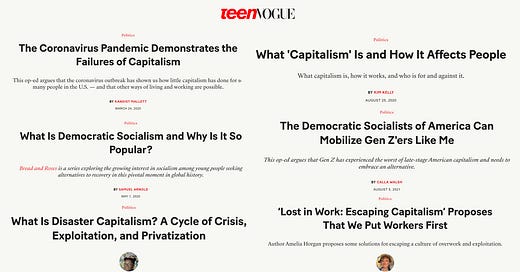I recently came across a study by the UK Institute of Economic Affairs which explored “attitudes of young people towards capitalism and socialism”. These stats caught my eyes:
67% of young people in the UK say they would like to live in a socialist economic system.
Moreover, 75% say climate change is a specifically capitalist problem (as opposed to a side…




